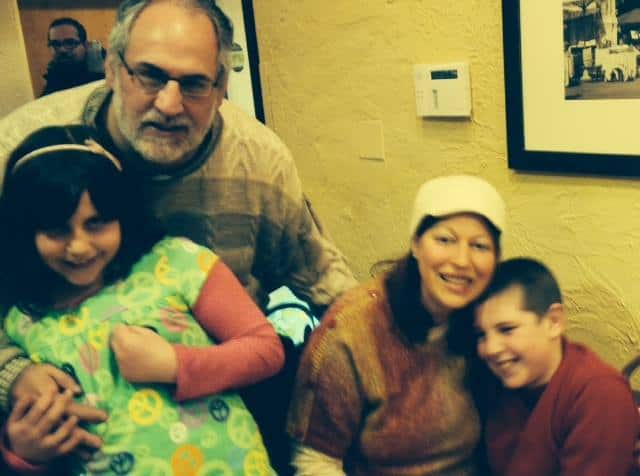One of the ways that I begin a conversation with the teens in Jewish Learning Venture’s Teen Assistant Program/Reta Emerson fellowship about disability awareness is to invite the teens to think and write about the closest person in their life who has a disability and what they have learned from knowing that person. Some of the teens write about a sibling who is diagnosed on the autism spectrum; others share about grandparents who have acquired a disability that causes them to rely on a walker or use a hearing aide. Some teens share about students in their school who have developmental disabilities, whom they have watched from afar but never had a chance to interact with. Some mention a person in their synagogue community who uses a wheelchair or is blind or deaf and how that person participates in services. Some of them share about their own disabilities and about the resilience that they have developed through the hard work of becoming self-advocates.
Disability touches all of our lives, whether or not we have a diagnosed disability or a family member who does. Human life is interconnected and even if your children are typically developing, you may one day become a grandparent of a child who has a disability or acquire a disability yourself with age. You may get a phone call from your best friend from college whose child has just been diagnosed with autism. You may send your child to an inclusive preschool and get to know families whose children are immersed in speech, occupational and physical therapy when they aren’t in the classroom with your own kiddo.
If you are one of those parents whose life is not personally touched by disability, all of us who are living it from the inside invite you to come in and get to know our experiences. We want you to be our allies and supporters. We want you to have our backs when we go to the carpet for our kids to get them the education that they need (yes—even with laws in place—most of us spend a good part of our waking hours fighting to get our kids what they require to learn). We want you to invite us over for a playdate, even if our child’s behavior seems challenging. Ask us about it. Make eye contact with us in the school parking lot. Smile at us when you see our child having a meltdown. It might look like we’re not trying to engage with you—but in those hard moments, we see you and your support means everything. We’re exhausted and stressed a lot of the time, but trying our best to seek community.
A few years ago, I was eating with my family at a kosher restaurant in center city. My son, now 12, who has autism, is impaired in terms of his communication and sensory needs. He loves to be out in the community and was very excited to eat in this restaurant. What that looked like in terms of his behavior was lots of giggling, rocking back and forth and sometimes hopping out of his chair to circle our table. Autism teaches our family to have a sense of humor, to accept our son’s quirks and all of our own.
But a few tables away, there was a large family with six children and two of the kids sitting at the end of the table spent their meal staring at my son, laughing and even pointing. I ignored them; parenting a child who has autism has also allowed me to develop a thicker skin. I was grateful that my daughter, two years younger than my son, had her back to those children; she is loving and empathetic towards her brother and can’t tolerate someone being mean to him. They were children—and their parents weren’t tuned in to the fact that their behavior was violating the Jewish values of not embarressing and also respecting differences.
I am sure their parents were tired and happy to get out for a meal, too and I saw they were busy with a baby and enjoying some adult conversation. But from that experience, I recognized how essential it is that all of us parents do the ongoing work that it takes to help children grow up appreciating everyone’s differences and challenges. Take time out to talk about how we treat people with disabilities, make it an ongoing conversation in your home. Catch your children when they are laughing at people and explain why doing so is wrong (I wrote about my own painful memories of being one of those children in a blog that I wrote for JDAM last year.) Even better–make sure that your children get to know people of all abilities so they can form relationships, develop empathy and learn that everyone is created in God’s image and worthy of dignity, love and respect.
February is Jewish Disability Awareness and the Jewish Special Needs Consortium of Greater Philadelphia is sponsoring an expressive online art gallery in which children create art in response to the statement “Including People of All Abilities Looks Like…”
Take a half hour with your children, read one of the recommended books or videos and create some art together for the gallery. You could even make some art to share, too!
Together, we are making our community more inclusive for every person and bringing important Jewish values to life.




